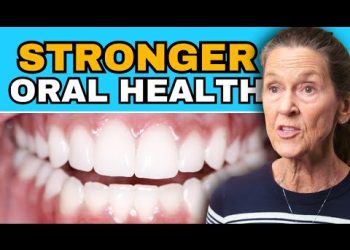Understanding the Root Cause of Cavities
It’s a common misconception that specific foods, like sugar, directly cause cavities. However, cavities are actually the result of bacteria consuming sugar and producing acid. This acid demineralizes the tooth surface, leading to cavity formation. One primary culprit is the bacterium streptococus mutans, which is not inherent but communicable.
The Nature of Tooth Remineralization
The goal of oral health is to maintain a balance where teeth are in a state of remineralization. This is largely dictated by the pH level in the mouth, which the saliva can influence by promoting or hindering remineralization.
Role of Diet in Oral Health
While it might seem beneficial, completely eliminating carbohydrates and sugars isn’t practical for most people. Even on a low-sugar diet, streptococus mutans can find other sources to sustain its growth. The focus should be on reducing the bacterial load and acidity in the mouth.
Utility of Fluoride in Strengthening Teeth
Fluoride strengthens teeth by replacing some hydroxyapatite bonds in tooth enamel with stronger ones, making them more resistant to acid. However, it is not an essential nutrient and should be used appropriately.
Impacts of Alcohol and Stimulants on Oral Health
Alcohol consumption can disrupt the oral microbiome and shift saliva pH, promoting demineralization. Stimulants, like some drugs enhancing adrenaline, also affect oral health by creating a more acidic environment and promoting mouth breathing.
Importance of Breathing and Oral Habits
Nasal breathing is preferable over mouth breathing as it helps maintain a moist environment conducive to remineralization. Smoking and vaping are detrimental as they dry out the mouth and alter the oral microbiome.
Intermittent Fasting: A Benefit to Oral Health
Intermittent fasting can enhance oral health by allowing saliva, with its natural pH balance, to remineralize teeth without being interrupted by constant eating or drinking of acidic foods and beverages.
Tips for Effective Brushing and Flossing
For optimal oral hygiene, use a soft toothbrush to avoid damaging the gum-tooth interface. Correct flossing gently cleans beneath the gum line, preventing bacterial colonization. Regular brushing and flossing are crucial.
Advantages of Xylitol for Dental Health
Xylitol, a sweetener, is non-cariogenic because streptococus mutans cannot produce acid from it. It can decrease bacterial proliferation and thus aid in reducing the risk of cavities.
Choosing the Right Mouthwash and Toothpaste
Many mouthwashes, especially those with alcohol, harm the oral microbiome. It is recommended to use non-alcoholic mouthwash. Baking soda with water is a safe toothpaste alternative. Additionally, high salt solutions can promote a healthy oral environment if used correctly.
Routine Dental Visits and Their Importance
Regular dental check-ups are essential for maintaining oral health, though daily oral care practices are crucial for preventing dental issues. Dentists emphasize daily oral hygiene as the key to preventing cavities and other dental problems.











